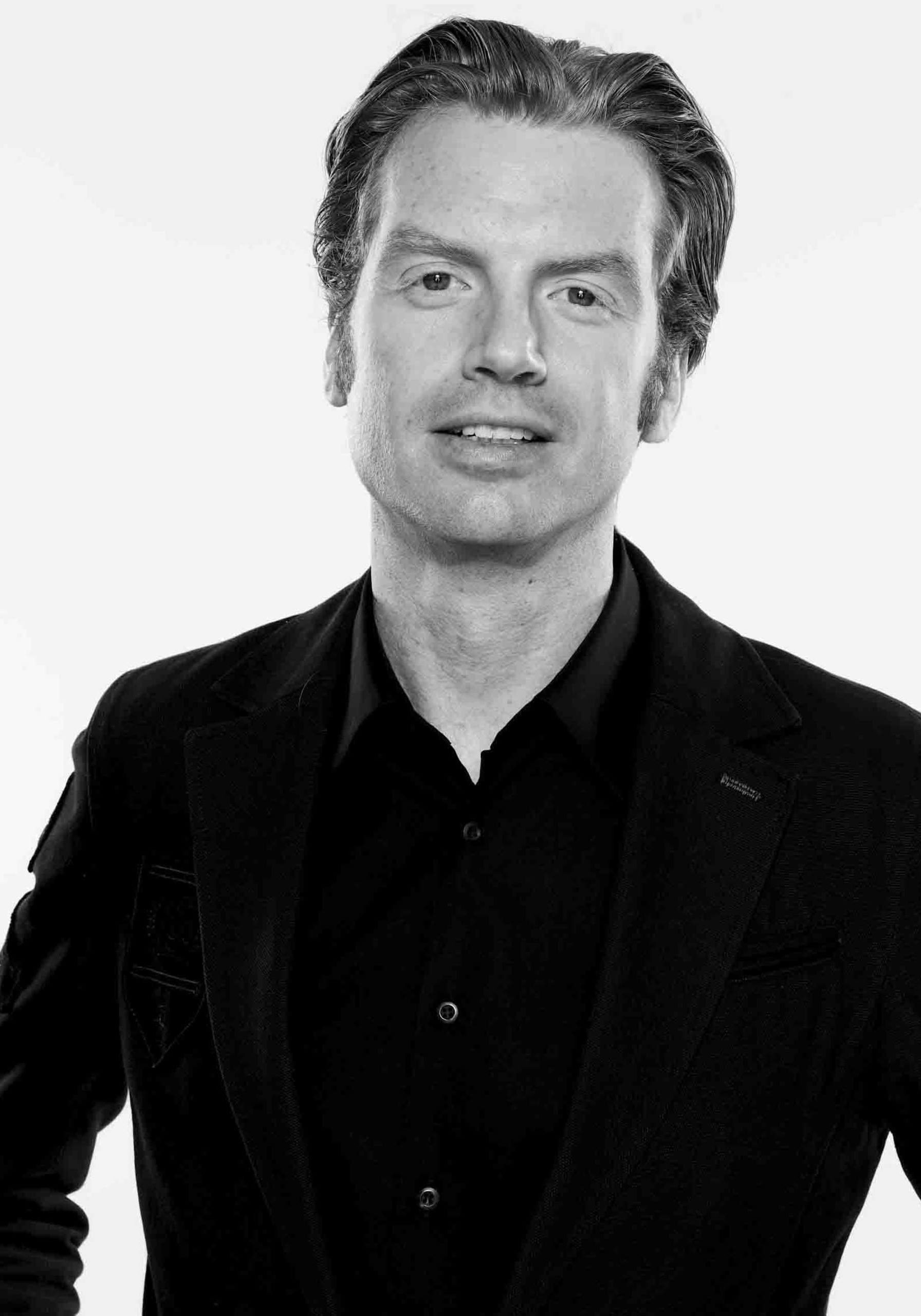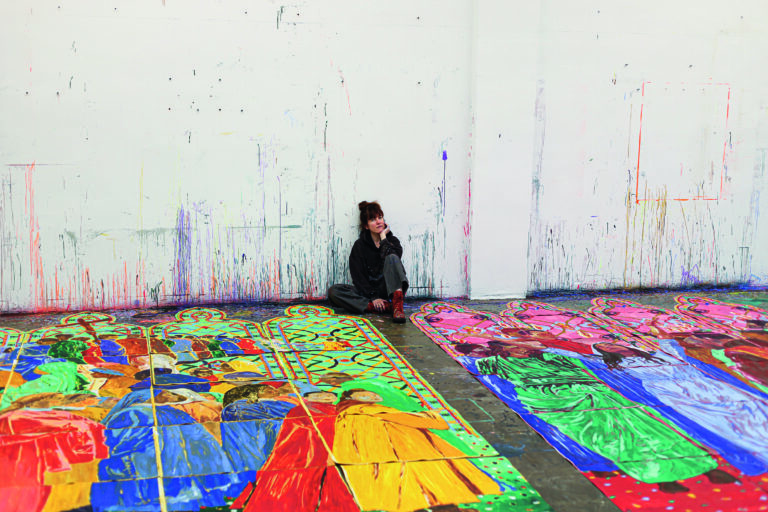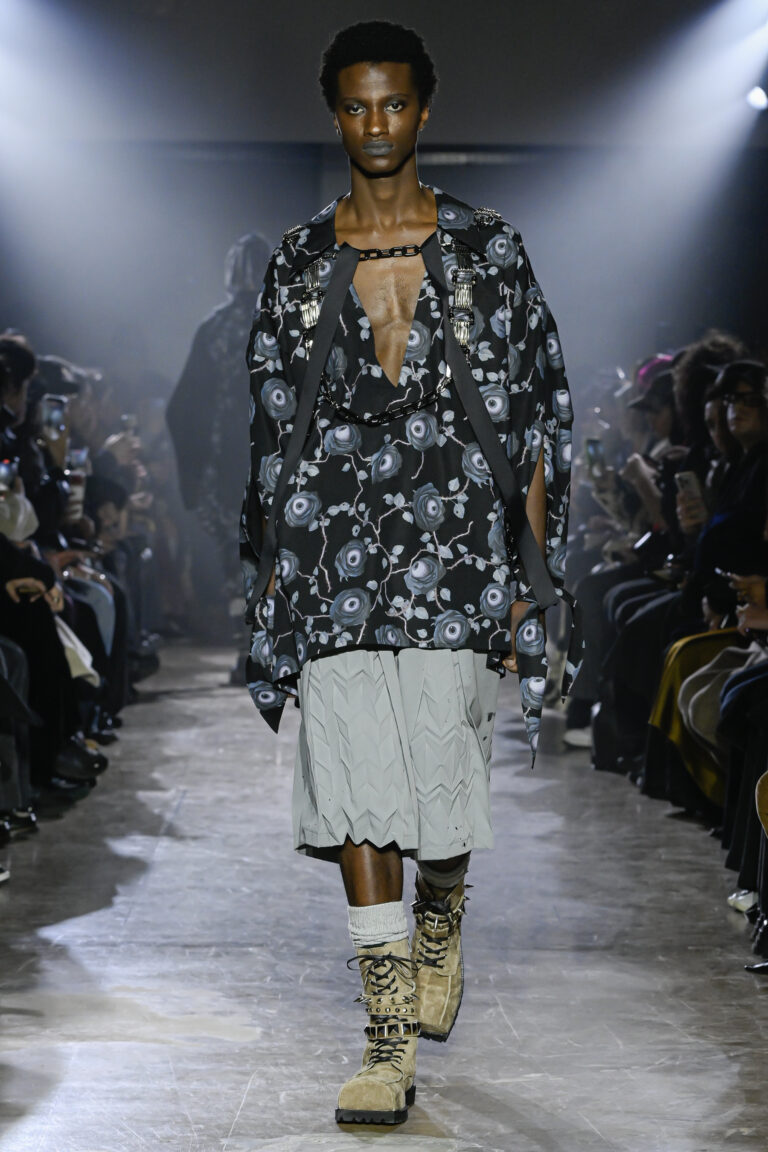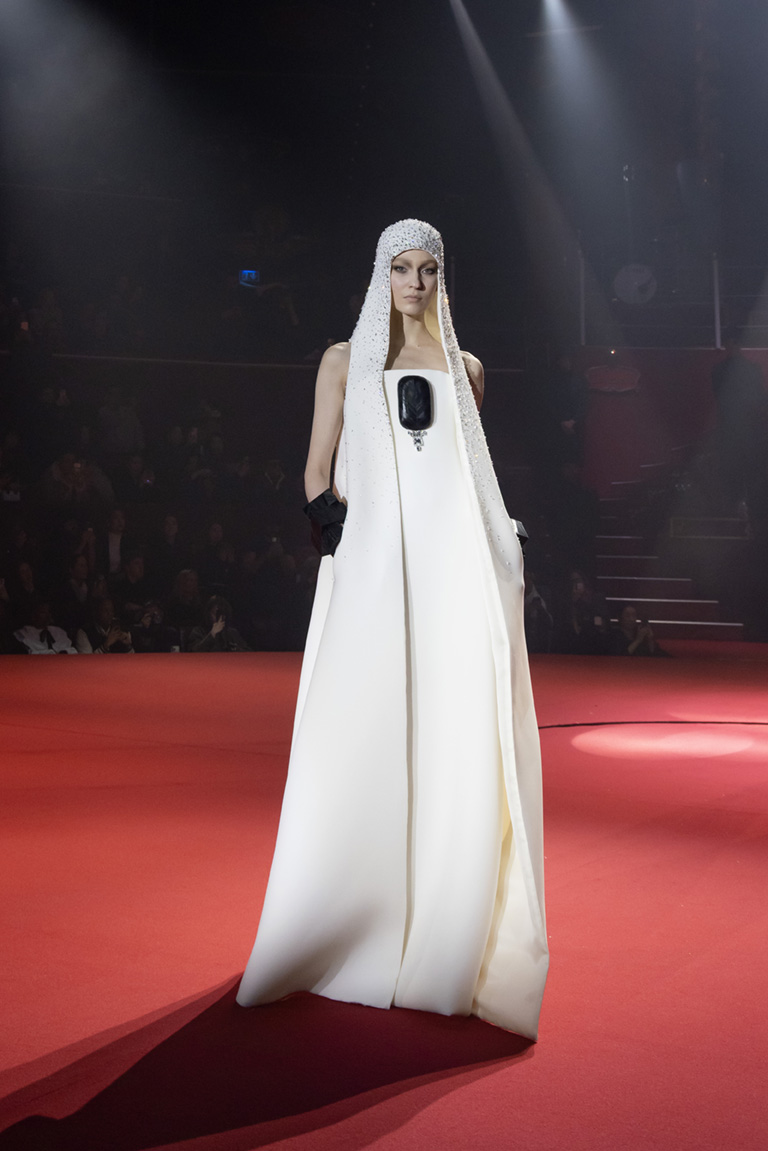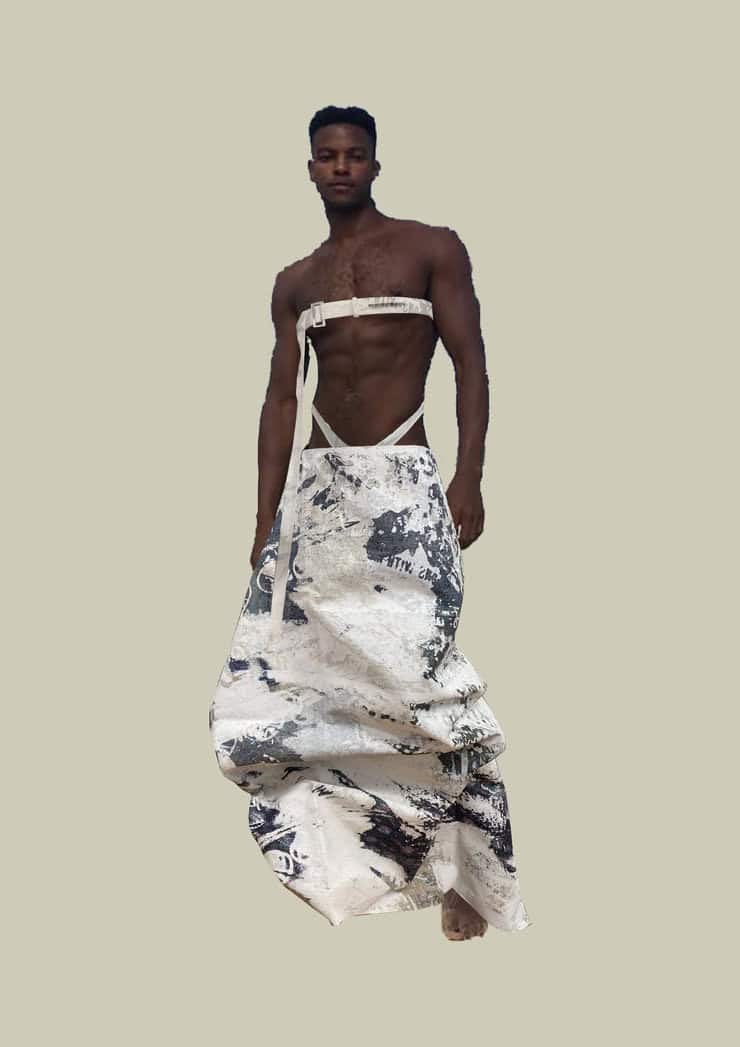
Yannik Zamboni How Avant-Garde Made the Cut
Brendan Cannon
From the moment Swiss designer Yannik Zamboni hits the screen on the 3rd season of Amazon’s MAKING THE CUT, viewers were treated to one of the most interesting contestants on a design competition series in years. Statuesque and always clad in his signature white futuristic designs, Zamboni approach to fashion was unlike anyone else. In this exclusive conversation with IRK, Zamboni explains his unique take on and how he brought avant-garde to mainstream TV.
IRK: Your mission statement for the brand states your belief that clothing can address socio-political issues. Can you elaborate on how fashion can help bring awareness to modern day issues?
Yannik: Fashion can be used to follow socio-political behavioral patterns or to represent something exactly the opposite. Quite simply, you can attribute blue dresses to boys and pink ones to girls, you can consider leather extremely harsh and tulle feminine. Or you can wear dresses, skirts and tulle as a man and raise questions in society only when wearing pieces designed for another gender. This is exactly the behavior Ikeep in mind when designing.
I don’t want to design in a binary system, so I mix the codes assigned to one gender and create all gender inclusivefashion. Any socio-political issue can be transformed into fashion. Fashion communicates and raises questions. That is what I want to do. Color, fabrics, and clothes should not be assigned to one gender. That’s old fashioned.
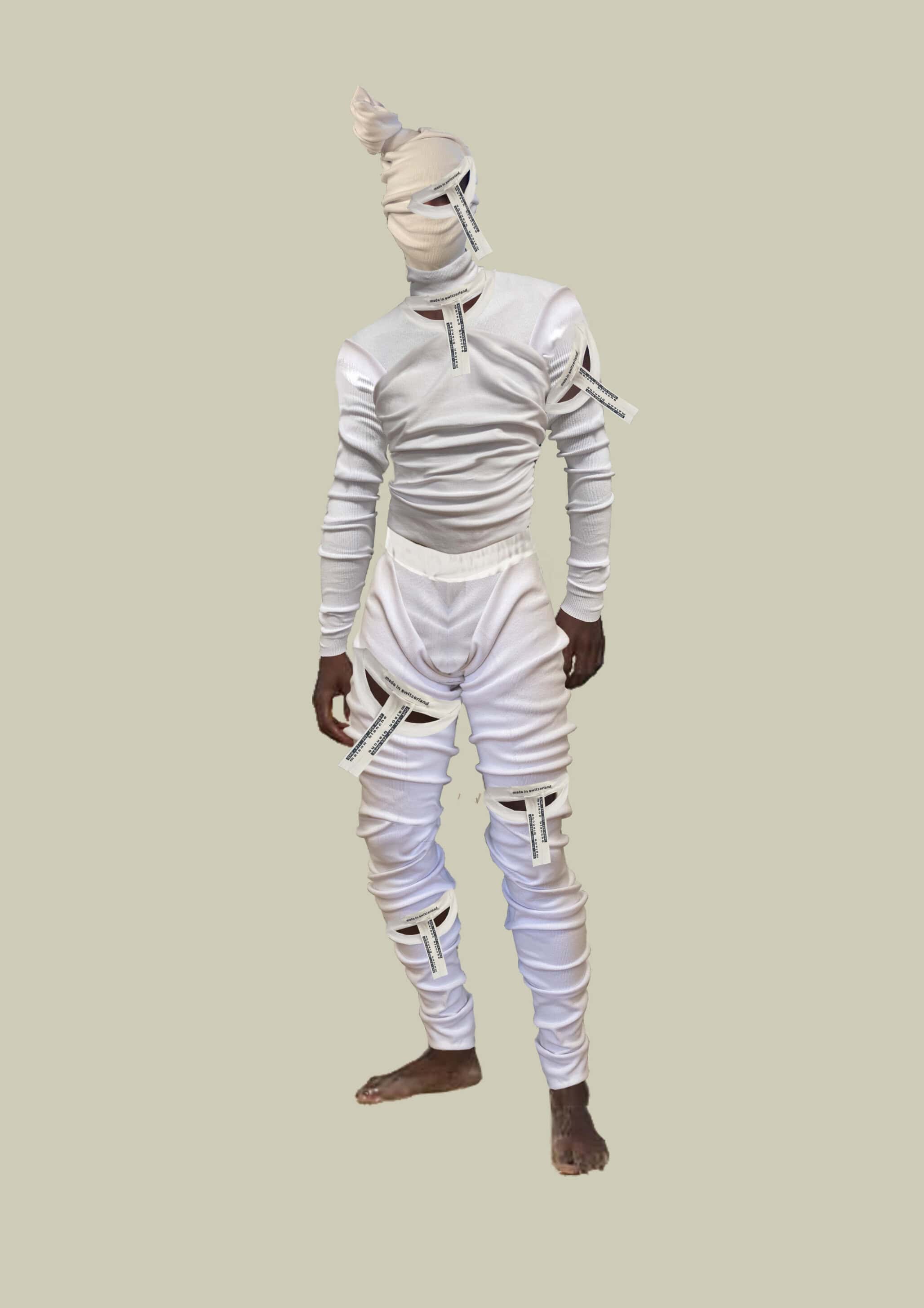
IRK: You describe your work as conceptual—describe what this means to readers who might only be familiar with traditional design.
Yannik: When I begin to conceive a collection, the concept comes before the design. My concepts are always based on socio-political themes and respond to my questioning of design.Questions as simple as “why don’t men wear skirts?” or morecomplex ones like “why is society and politics dictating whether someone can have an abortion?” Such questions are the core of each collection and are researched and translated into fashion.
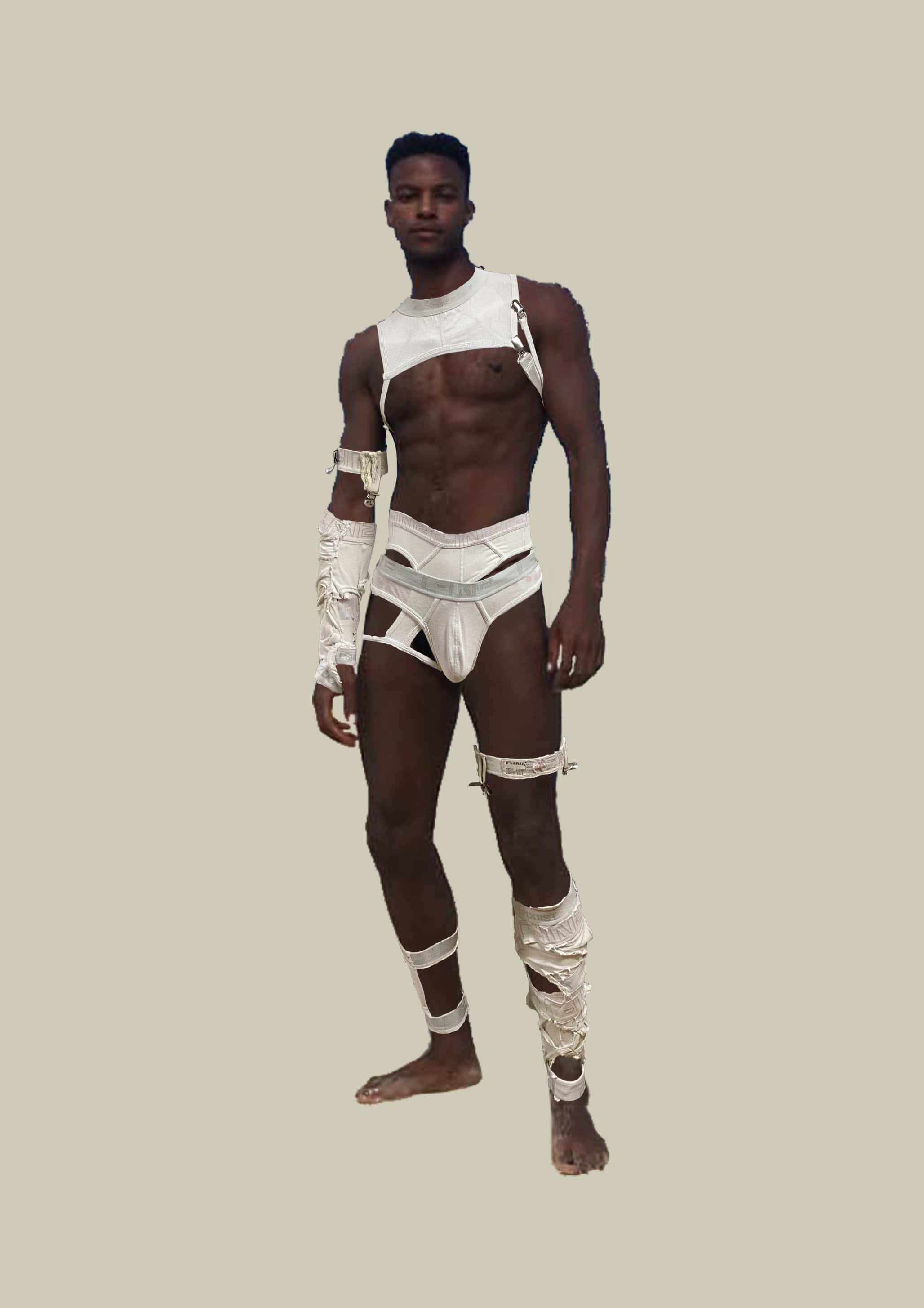
IRK: Your design aesthetic seems to be more avant-garde, were you apprehensive to have your introduction to the world on such a mainstream platform as the reality competitionMaking the Cut?
Yannik: Yes, I was but I also saw the incredible opportunity it was. I was able to explain my designs and convince the judges (and thus the audience) over several stages and not only on the very first day. In addition, I quickly realized that I was standing in front of a jury of experts and that they understood very well what I was doing.
IRK: Are you competitive by nature? Do you thrive in that atmosphere, or do you prefer to work alone?
Yannik: I love working with others who think similarly to me, it spurs me on and I appreciate the direct feedback.
IRK: How did your time on the competition contribute to your design aesthetic? Did it change your design vision/style?
Yannik: I would say that in a very short time I have learned to create an accessible look out of a runway look. Until now, I never had to ask myself if something was accessible, I have just created what I wanted. That’s what I learned on the show, and it has helped me extremely as a designer.
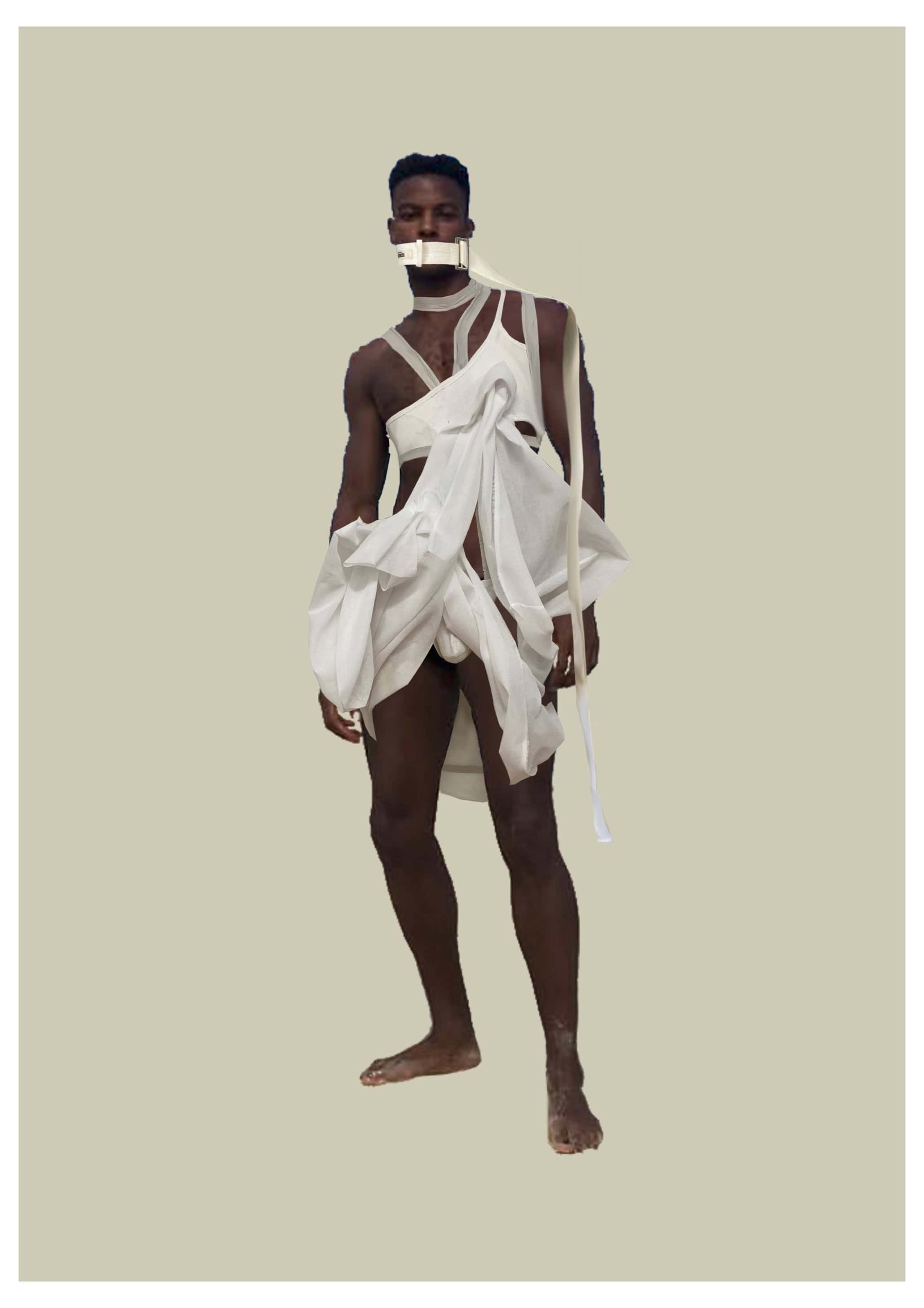
IRK: In bringing the brand to the public what do you wish to convey?
Yannik: I would like to change socio-political rules of conduct.
I want the fashion business to value people and labor more.
I want fashion to function in a circular way and not to cause harm, neither to people nor to the environment.
I want to be the change or drive the change that I want to see in society.
IRK: What do you think is missing in the designer market?
Yannik: People who deeply care, I wish there would be more.
IRK: You will be debuting your latest collection this upcoming NYFW—Why did you decide to show in NYC?
Yannik: My first time in the US was filming for Making the Cut and I felt comfortable right away. I also received extremely good feedback from people on the street about my style. I addition to that I think that in NYC, especially at Fashion Week, there are not many designers anything similar to what I do so I think my chances of being noticed are higher than if I would show in Europe.
IRK: Are you going to follow the established fashion calendar? Or are you going to be working on you own timetable?
Yannik: Basically, I like to work under pressure with a fixed date as a goal. But I don’t work with seasons, and I don’t know yet when I will show my next collection. I guess I will rather work with my own timetable.
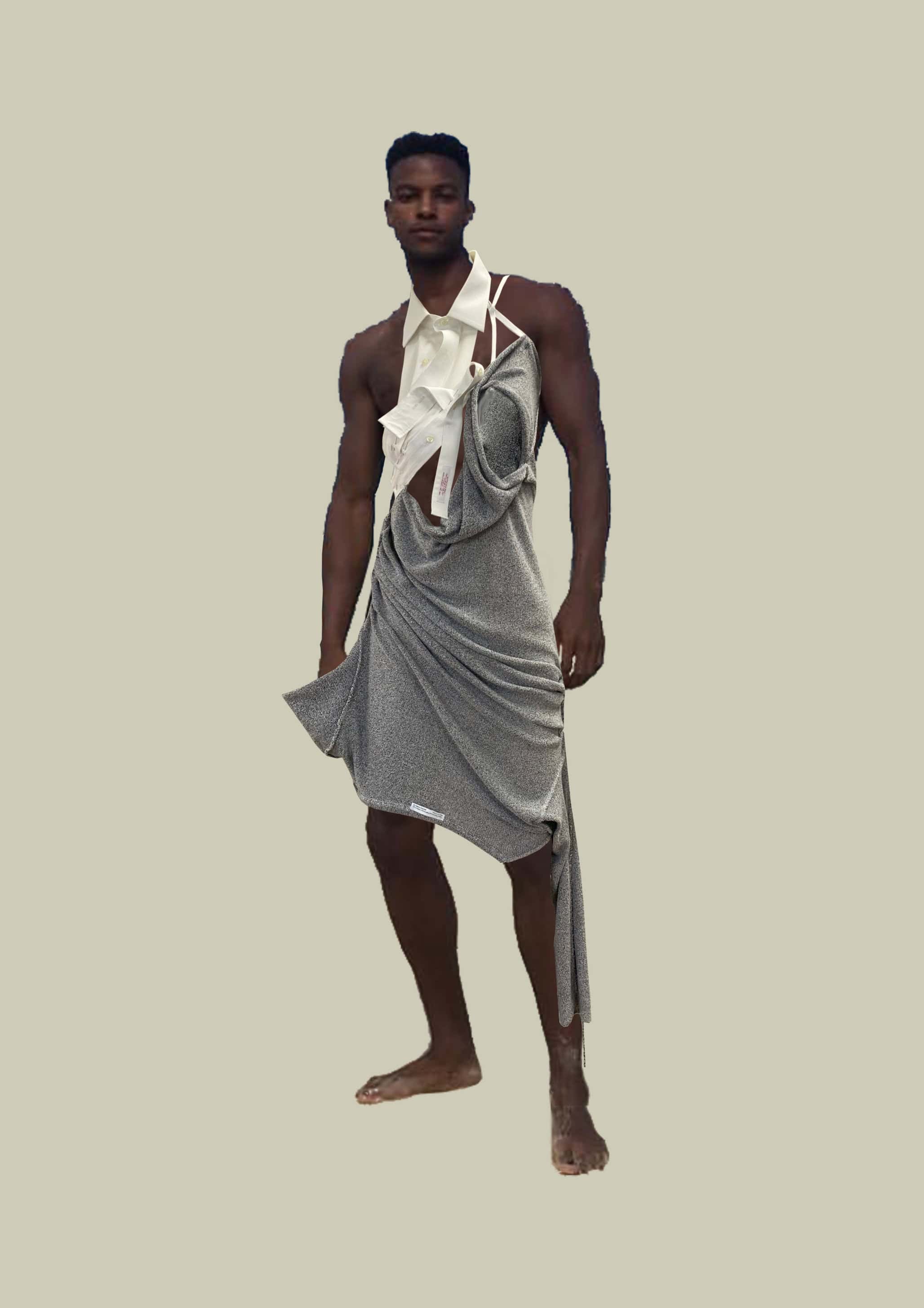
IRK: What can you tell us of your upcoming projects and collections? What direction is the Maison Blanche brand going in for 2023?
Yannik: I don’t like to plan too much and prefer to let things come to me. But two big goals would be a complete Cradle2Cradle collection which is in the biological cycle (everything biodegradable) and an all-gender inclusive collection. I would like to collaborate with other designers and established brands.
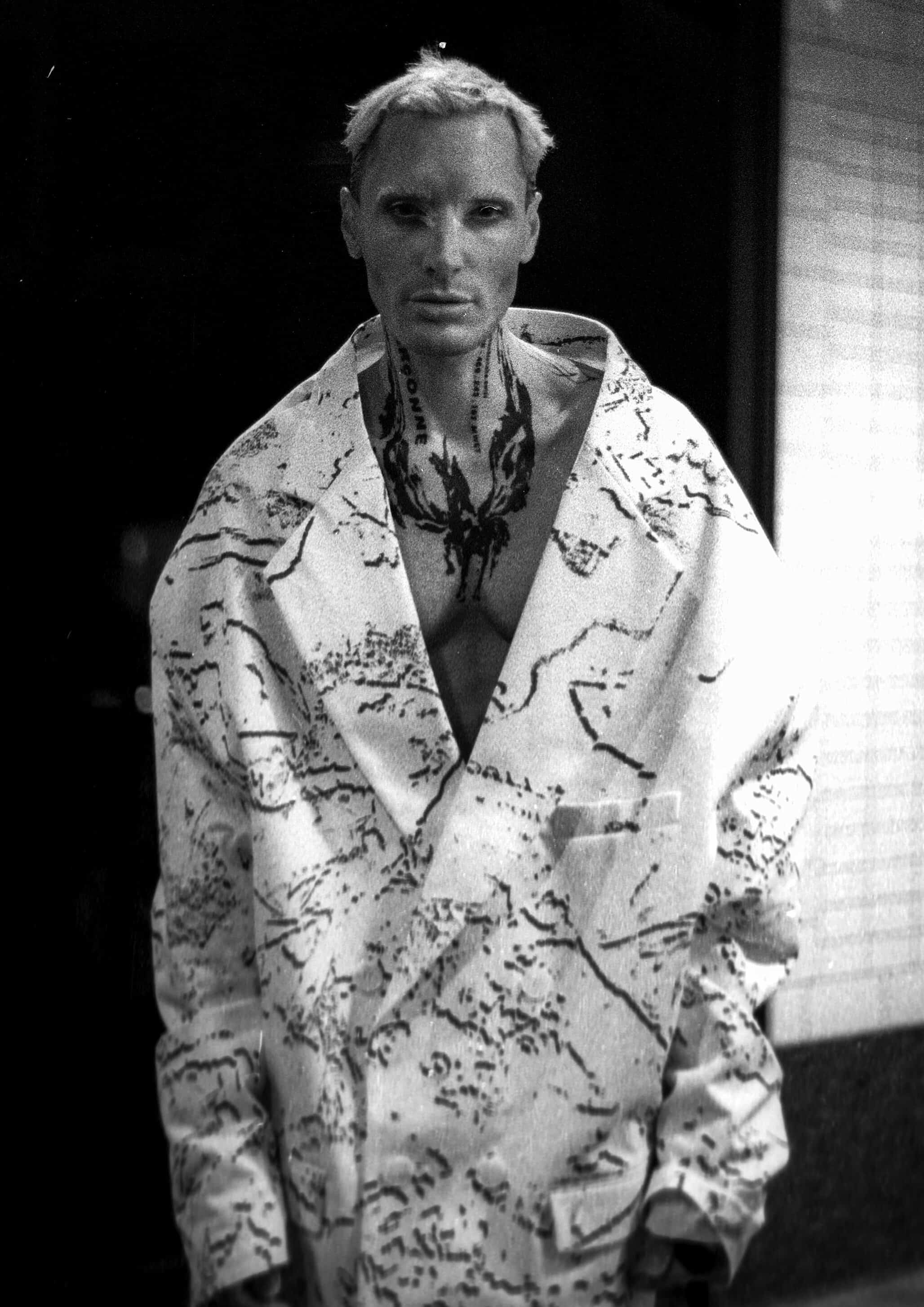
Share this post
Cannon is our Editor-At-Large since August 2016. He grew up in New York City and was influenced at an early age by rock and fashion. He is an award-winning celebrity stylist, fashion editor and creative director who has styled many of his favorite musicians including Annie Lennox, Cyndi Lauper, Jimmy Page and Shirley Manson. His wit, charisma, and style have made him a trusted and sought-after stylist by Hollywood legends such as Liza Minnelli, Willem Dafoe, Dennis Hopper, and Glenn Close.
Cannon has also worked with some of today's hottest celebrities, including Diane Kruger, Angelina Jolie, Matt Damon, Penn Badgley and Kellan Lutz. He was the first stylist to get Barbra Walters into a pair of jeans for a photo shoot, and had the opportunity to dress Michael Jackson as the KING OF POP for MTV. In addition, Cannon also founded PLUMA- a luxury costume jewelry collection made exclusively in Italy that was recently featured on the cover of Italian Vogue. As a result of working with great musicians and celebrities, Cannon has contributed to multiple publications including: Rolling Stone, Vogue, Time, Entertainment Weekly, Vanity Fair and W. He has styled large casts for every network including: Lost, Sopranos, The View, Project Runway, Kelly, The Today Show, Top Chef, and The Office. Cannon's expertise in fashion also has lent itself to him being in front of the camera as a style expert, with television appearances on E!, Style, VH1, CBS, NBC, ABC, TLC, and Bravo. Cannon has been an on-air spokesperson for TJ Maxx, Burlington Coat Factory, Chapstick, Pantene, Dove, and Peanuts/Snoopy Worldwide. He has also been profiled in American, German and Japanese publications. In addition, Cannon was instrumental in organizing an inaugural panel discussing fashion and film for MEIFF in which he also served as a participant alongside Jason Wu and Kathryn Neale Shaffer, contributing editor at American Vogue.
Whether it's obtaining real museum pieces for a Discovery Channel commercial or recreating 50 unique culturally observant costumes for the worldwide launch of the National Geographic Channel, Cannon's respect for authenticity and his gift of problem solving has left lasting impressions on everyone he has worked with. Additional commercial work also includes Saks Fifth Avenue, Target, Sony Music, RCA, Bravo Network, Sprint, Bergdorf Goodman, and Neiman Marcus.
Cannon has styled fashion shows for Jason Wu and the Life Ball in Vienna, Austria, starring THE BLONDS, which is the largest AIDS benefit runway show in the world, that year hosted by President Bill Clinton and Eva Longoria. Other fashion shows include Snoopy in Fashion, Joanna Mastrioni to name a few. He has also styled shows for Safilo and their licensed brands, which include Gucci, Christian Dior, Emporio Armani, Ralph Lauren, Dior Homme, Max Mara, Marc Jacobs, Marc by Marc Jacobs, Stella McCartney, Banana Republic, Tommy Hilfiger.
Read Next

